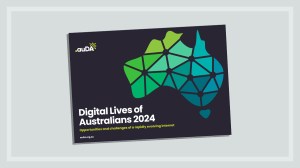
New anti-scams code targets banks, telcos and digital platforms

In 2022, Australians lost $3.1 billion to scams, a whopping 80% increase compared to the previous year. The 2020s, it seems, have become the decade in which scammers have clearly gained the upper hand.
The federal government has finally committed to introducing a new mandatory anti-scams code, focusing on banks, digital communications platforms and telecommunications providers.
This commitment to begin rolling back the exponential increase in scams of recent years is a welcome development that CHOICE and our allied consumer advocacy organisations have long been calling for.
‘Really clear obligations’
“These tough new codes would make it really clear what the obligations are on industry to prevent scams and better protect people and businesses,” says Assistant Treasurer Stephen Jones.
“Disrupting these sophisticated criminals is a whole-of-society effort. Government, industry and the community all have a role to play. New scam codes will ensure we have tailor-made requirements for each sector to keep Australians safe,” says Minister for Communications Michelle Rowland.
These tough new codes would make it really clear what the obligations are on industry to prevent scams and better protect people and businesses
Assistant Treasurer Stephen Jones
In the 2023–24 budget, the government earmarked $86.5 million to fight scams. Some of those funds went to the establishment of a National Anti-Scam Centre in July 2023.
The government has also committed to establishing an SMS Sender ID Registry to help prevent scammers from imitating government agencies, a tactic that has become increasingly sophisticated and effective.
Meta and Google on notice
CHOICE director of campaigns and communications, Rosie Thomas, says the online platform duopoly, Meta and Google, is long overdue for a mandatory consumer protection code.
“Digital platforms simply aren’t doing enough to protect consumers from scams, putting people at unnecessary risk of harm,” Thomas says. “Without strong rules that require digital platforms to detect and prevent scams, and support people who’ve been harmed, scams will only continue to run rampant online.”
While the platforms rake in revenue from the criminals who pay for scam ads, the public loses millions.
Losses reported to Scamwatch from scams on social media have increased to $66.5 million in 2023, an increase of 41.6% on the same time period in 2022.
Without strong rules that require digital platforms to detect and prevent scams, and support people who’ve been harmed, scams will only continue to run rampant online
CHOICE director of campaigns and communications Rosie Thomas
“A recent CHOICE investigation also revealed a slew of likely scam ads impersonating popular Australian retailers across Google, Facebook and Instagram, further reinforcing the need for strong new regulations backed by hefty penalties,” Thomas says.
Businesses should be liable when they fail to protect consumers
CEO of the Consumer Action Law Centre Stephanie Tonkin says the government’s consultation paper appears to be a step in the right direction, but lacks one critical feature – a duty for banks and other businesses to reimburse scam victims when consumer protection standards are not met.
“The glaring omission is liability and rights for reimbursement for banking customers,” Tonkin says.
“We talk to many people who, through no fault of their own, have suffered life-changing losses to sophisticated scams, and they should not be made to foot the bill for a system that has failed them.”
Members of the public can take part in the consultation process to develop the final version of the code by lodging a submission.
As an alternative, the government invites the public to take this survey.
Related




